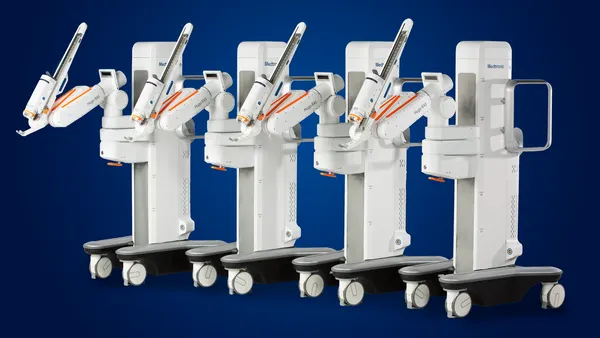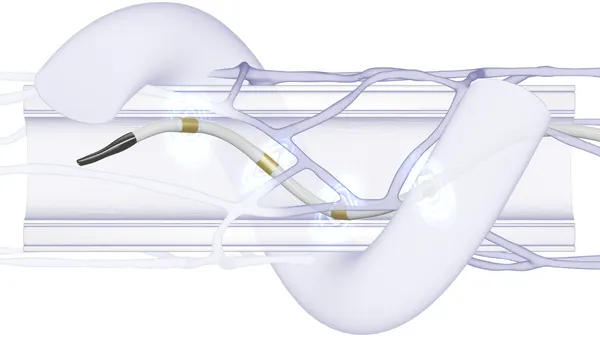Dive Brief:
- Penumbra will lay off 71 people working in its Immersive Healthcare business, according to a California Worker Adjustment and Retraining Notification notice obtained by MedTech Dive.
- The Immersive Healthcare business includes a suite of virtual reality products that Penumbra acquired in 2021, including VR-based rehabilitation and mindfulness exercises.
- Penumbra said in the Aug. 20 WARN letter that it will “permanently discontinue” the segment due to “changing business needs.” The cuts will start on Nov. 1, and will take place at Penumbra’s headquarters in Alameda, California. Penumbra did not respond to a request for comment at the time of publication.
Dive Insight:
CEO Adam Elsesser told investors in July that Penumbra had started to explore “alternative avenues” for the Immersive Healthcare business.
“Even with this confidence in the long-term benefit and likely success of our Immersive Healthcare platform and technology, our current focus needs to be on helping as many patients as possible in our interventional business,” Elsesser said.
The company reported a $110.3 million impairment charge related to the business in the second quarter. Penumbra acquired Sixense Enterprises in 2021, after working with the company through a joint venture for years to explore healthcare applications for virtual reality. At the time, Penumbra valued the company at $170 million.
CFO Maggie Yuen said in the earnings call that Penumbra expects to reduce more than $20 million in ongoing operating expenses and save more than $20 million in the next 12 months related to the “strategic move” for Immersive Healthcare. The changes are expected to contribute to Penumbra’s operating margin in 2025.
Penumbra lowered its sales forecast for 2024 by $60 million, to a range of from $1.18 billion to $1.2 billion. It attributed the decrease to a reduction in business in China, delayed product launches in Europe, the cut of the Immersive Healthcare business and changes its expectations for U.S. thrombectomy growth.
The layoffs come as other digital health technologies in the medtech sector grapple with challenges. OssoVR, which developed a virtual reality platform for orthopedics, underwent a round of layoffs earlier this year, and AppliedVR, which makes a VR-based treatment for chronic pain, cut its workforce last year.
Augmedics, which is making augmented reality technology for spine surgery navigation, bought bankrupt company Surgalign’s assets and raised $82.5 million in funding last year.













